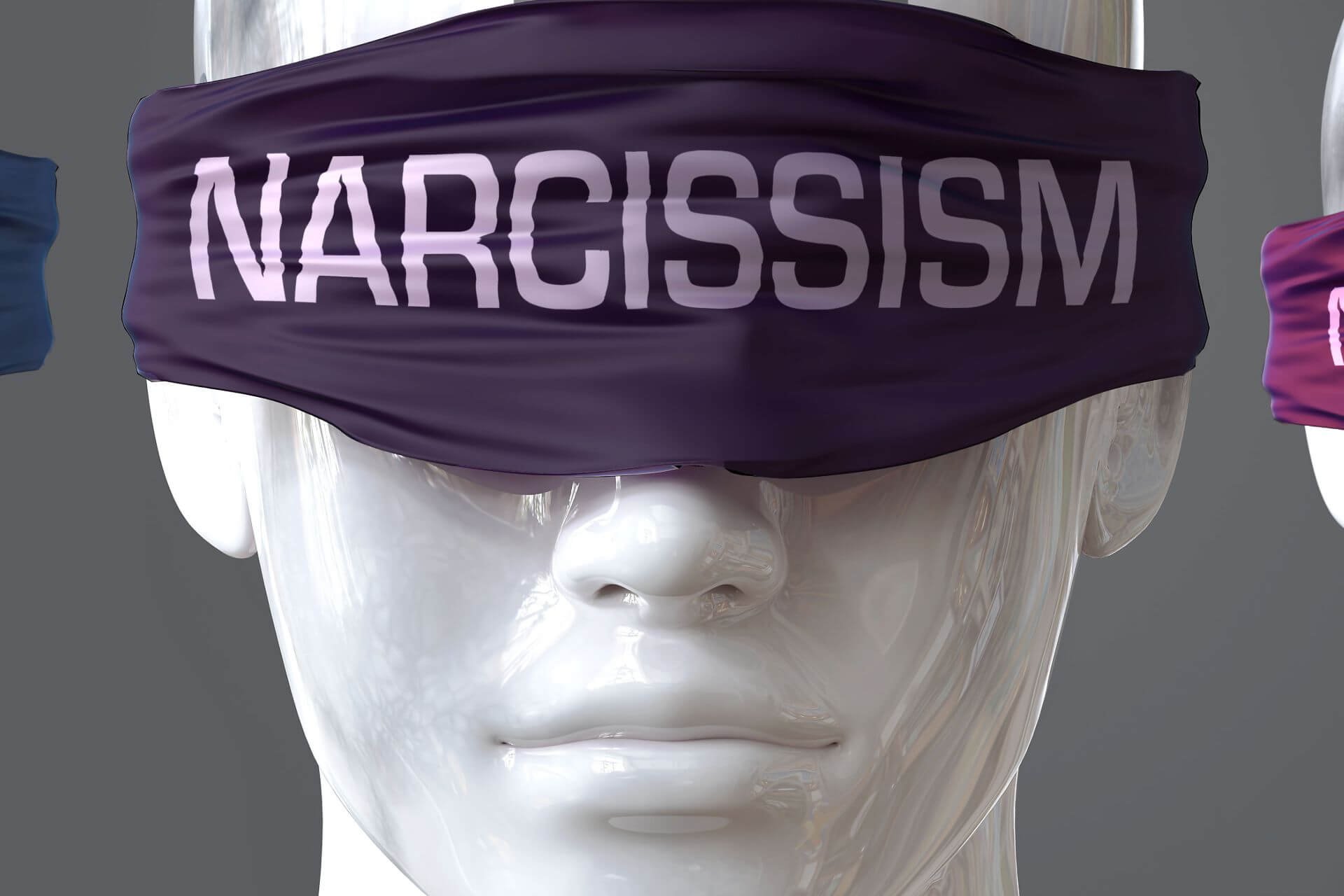How Do You Annihilate A Narcissist In Court?
A court battle against a narcissist can be daunting, given their manipulative tendencies and lack of empathy.
In this article, we'll discuss how to beat a narcissist in court and what challenges you might face during this time. Let's jump right into it.
What Is Narcissism And Its Legal Implications
Narcissism, one of the mental disorders characterized by exaggerated self-importance, ethos of entitlement, lack of empathy, and manipulating tendencies, can present unique challenges in the legal system.
Particularly in a custody case or divorce case, narcissistic individuals often exploit the legal court system to assert power and control.
A narcissist's tactics can result in emotionally draining interactions, and often, unfavorable outcomes for their adversaries.
The implications of narcissism in legal battles extend beyond the courtroom.
The narcissist's manipulative tendencies can wreak emotional havoc on their opposers, taking a toll on their mental health and overall well-being.
Furthermore, their ability to feign innocence can potentially sway judgments in their favor and lead to other challenges in family court orders.
Challenges of Dealing with a Narcissist in Court
You will face many challenges when dealing with a narcissist in court.
These individuals are not bound by the usual moral constraints, willingness to compromise, or acknowledgment of truth, making them highly unpredictable foes.
The narcissist will instigate conflict and prolong legal battles to maintain control or punish their adversaries — often at great emotional and financial cost.
Moreover, narcissists are adept at convincing others of their perspective.
They may manipulate facts and situations to portray themselves as the victims, painting their opposers in a negative light.
Narcissists may also make false accusations against you and you may know not what to do at that time. This article explains false accusations in detail. Judge Anthony also explains how to deal with a narcissist lying in court.
This situation becomes even more complicated when complex legalities are in play.
Is It Possible To Beat A Narcissist In A Legal Battle
While the task may seem insurmountable, it is definitely possible to beat a narcissist in a legal battle.
The primary objective of this piece is to empower you with practical, stepwise strategies about 'how to beat a narcissist in family court'.
Using a nuanced understanding of narcissism and supportive legal tactics, this comprehensive guide aims to help you navigate your legal journey effectively.
The upcoming sections will delve deeper into the various dimensions of a narcissist's court strategies, useful counter-actions, and how to safeguard oneself from their manipulations in the courtroom.
Armed with these, you can regain control and ensure a just and fair trial.
Identifying a Narcissist
Explanation of Narcissistic Characteristics
Narcissists exhibit particular characteristics that, when identified and understood, can be instrumental in defeating the narcissist in court.
Understanding these traits is the first critical step in dealing with narcissists legally.
Understanding their Manipulation Tactics
Narcissists are incredibly adept at manipulation tactics.
They often twist narratives, indulge in blame-shifting, and misrepresent facts to serve their interests.
These maneuvers help them maintain a favorable image, a fundamental aspect of narcissist manipulation in court.
Recognizing their Lack of Empathy
Another distinctive trait of narcissists is their glaring lack of empathy.
This inability to understand or share feelings forms the foundation of the narcissist's court tactics.
It allows for a ruthless pursuit of their objectives, with an utter disregard for the emotional trauma they may inflict on others.
Identifying their Monstrous Need for Admiration
Narcissists have an excessive need for admiration and validation.
This insatiable desire fuels their self-promotion, enabling them to project an impressive facade.
Understanding this trait can aid you in exposing narcissists in court, providing an edge in your legal battle against them.
How these Characteristics Manifest in Court
These narcissistic characteristics often manifest as troublesome behaviors in court, posing significant challenges in confrontations with a court narcissist.
Excessive Self-Promotion
The narcissists in court will make persistent efforts to portray themselves in the best light possible with excessive self-promotion.
They will overshare their achievements, overstate their capabilities, and underplay their mistakes.
This self-promotion is a consistent feature of the narcissist's legal battle strategy.
Inability to Accept Accountability
A cornerstone of the narcissist's court tactics is their infamous refusal and inability to accept responsibility or accountability.
They consistently blame others and external circumstances for their shortcomings and failures.
They may resort to creating elaborate stories to avoid facing the consequences, exacerbating the complexity of your court proceedings with the narcissist.
Escalation of Conflicts
Narcissists thrive on conflict and might escalate issues unnecessarily to sustain chaos and divert attention.
This escalation is part of their contestation strategy, making it vital to prepare adequately when fighting a narcissist in litigation.
Toxic Relationship Patterns
Narcissists are notorious for establishing toxic relationship patterns that can confuse and weaken their adversary.
In this judicial context, recognizing these patterns is the first step toward surviving a narcissist in court.
Gaslighting
Gaslighting is a manipulative tactic often employed by narcissists to distort the perceptions of their opponents.
They instill doubt and confusion to make their victim question their own memory and reality.
Spotting this gaslighting is a critical step in outsmarting the narcissist legally.
Triangulation
Another common tactic employed by narcissists is triangulation.
They might bring in a third person into the scenario, manipulating their interactions to provoke conflict or gain power.
Recognizing this tactic can prepare you to confidently challenge the narcissist legally.
Preparing for the Legal Process
Establishing a Support System
Establishing a robust support system plays a pivotal role when dealing with a narcissist legally.
This support system becomes especially crucial to minimize the emotional toll of confronting a court narcissist.
Importance of Emotional Aid
Engaging in a legal battle, especially with a narcissist, can be emotionally arduous. Emotional aid from friends, family, or counselors is incredibly important.
Support from a narcissist can provide much-needed strength and perspective during such testing times.
This emotional support can be the key to surviving a narcissist in court.
Relying on Professional Assistance
Relationships with narcissists often have nuanced complexities that require an expert understanding and professional assistance.
Professional help such as therapists or lawyers who specialize in narcissistic abuse can provide critical guidance to navigate this perplexing landscape.
Role of Support Groups
You are not alone in this fight against the narcissist. There are various support groups who understand your ordeal and can provide comforting solidarity.
These communities can share insights to equip you for the narcissistic personality courtroom battle.
Gathering Concrete Evidence
A critical aspect of the legal defense against narcissism involves gathering concrete, irrefutable evidence to expose their actions and behaviors in the court setting.
Importance of Irrefutable Evidence
In any legal case, solid evidence is the cornerstone. When contesting a custody battle or divorce with a narcissist, irrefutable evidence becomes a paramount requirement.
Strong evidence can strip them of their pretentious facades, ultimately defeating the narcissist in court.
Judge Anthony explains the process of divorcing a narcissist in this detailed article.
Documenting Narcissist's Behaviors
Documenting a narcissist's behaviors, especially instances of manipulation or emotional abuse, can play a prominent part in your legal strategy.
Recording incidents detail-by-detail, with time and date, can significantly strengthen your case against the narcissist.
Utilizing Digital Records
Digital records like emails, texts, or social media interactions can serve as potent evidence against a narcissist in court.
These records can illustrate the toxic patterns of behavior of the narcissist, thereby making an exponential impact in challenging the narcissist legally.
Setting Boundaries in Legal Encounters
Establishing clear boundaries in legal encounters lays the groundwork to outsmart the narcissist legally.
These boundaries prevent further manipulation and keep you focused on your objectives.
Restricting Direct Contact
The narcissist in litigation will attempt to engage in direct contact to instigate emotional reactions and further their manipulative agenda.
Restricting such contact can vastly amplify your legal defense against narcissism.
Preventing Further Manipulation
Remain aware that every interaction offers an opportunity for the narcissist to manipulate the situation. This manipulation must be prevented moving forward in order to win in court.
Minimizing interactions and maintaining a professional demeanor deters such efforts, helping you regain control over the situation, and ultimately assisting in defeating the narcissist in court.
Overcoming a Narcissist in Court
Presenting Your Case Coherently
One crucial aspect of defeating a narcissist in court is the ability to present your case coherently.
Effective presentation curtails the narcissist's courtroom tactics and bolsters your chances of triumph.
The importance of Staying Calm and Collected
It is important to have a calm and composed demeanor during a narcissistic personality courtroom battle is crucial.
Narcissists aim to provoke emotional responses to cloud your judgment and gain an upper hand.
Staying unflustered helps you maintain control, ensuring a clear and effective presentation of your case.
Presenting Evidence Logically and Systematically
Presenting evidence logically and systematically will strengthen your legal defense against narcissism.
This systematic narrative exposes the narcissist in court, highlighting the chronology and seriousness of their misconduct.
Methodical, substantiated arguments are more likely to convince the judge about the validity of your claims.
Responding, Not Reacting, to the Narcissist
Considering the narcissist's contentious nature, it's essential to learn to respond, not react, during legal encounters.
Reactions are emotional, whereas responses are reasoned. This difference can significantly impact the course and outcome of your court case with the narcissist.
Setting Realistic Expectations from the Legal Process
A key part of outsmarting a narcissist legally is setting realistic expectations. This mindset plays a vital role in the face of a dubious judicial process and probable challenges.
Understanding that the Court May Not Punish the Narcissist
Courts aim to resolve disputes rather than punishing parties. Knowing this will help you understand that they may not punish the narcissist.
It is absolutely essential to understand this.
Your primary goal should be a fair outcome that protects your interests.
Focusing on Fair Judgement and Protecting Your Interests
The ultimate objective in confronting a court narcissist should be procuring a fair judgment and safeguarding your rights and interests.
The focus should be less on 'proving' the narcissist's behavior and more on demonstrating how their actions have impacted you and your rights.
Being Prepared for Setbacks and Continued Litigation
Narcissists are known for drawing out legal conflicts for their gain so you must be prepared for setbacks and continued litigation.
The continued litigation will get expensive and stressful.
A prepared mind can better cope, ensuring sustained strength during your journey.
Recently, I have written an article on How To Get Full Custody of a Child without Going to Court. You can check it out If you are interested in the topic.
Post-Trial Process and Recovery
Surviving a narcissist in court is half the battle. An equally, if not more, critical part is the healing process. Once the trial concludes, the focus shifts to recovery and rebuilding your life.
Healing and Moving On
It's crucial to give yourself time and space to heal and move on after your case has ended.
Recovery involves processing the emotional havoc, accepting the reality, and, gradually, moving forward.
Therapy, meditation, and self-care routines can considerably aid this process.
Rebuilding Self-Esteem and Trust
Narcissistic abuse can erode your self-esteem and trust in others. Rebuilding these facets might require time and patience.
Consider seeking therapeutic help or joining support groups to facilitate this recovery.
You've won a significant battle; now, it's time to claim your peace.
FAQs (Frequently Asked Questions)
1. What are the challenges of dealing with a narcissist in court?
Dealing with a narcissist in court presents several challenges due to their personality traits and behaviors.
Narcissists often do not adhere to moral constraints, show a lack of willingness to compromise, and have a tendency to manipulate facts.
They may instigate conflict, prolong legal battles, and manipulate others to portray themselves as victims.
Their lack of empathy and need for admiration can lead to a ruthless pursuit of their objectives, often resulting in emotionally and financially draining legal encounters for the opposing party.
2. How can one prepare for a legal battle against a narcissist?
Preparing for a legal battle against a narcissist involves several key steps:
Establishing a Support System: Having emotional support from friends, family, or counselors is crucial to withstand the stress of the legal process.
Professional Assistance: Engaging with lawyers and therapists who specialize in narcissistic abuse can provide valuable guidance.
Gathering Concrete Evidence: Documenting the narcissist's behaviors and collecting digital records like emails and texts can serve as strong evidence in court.
Setting Boundaries: Restricting direct contact with the narcissist and preventing further manipulation by maintaining a professional demeanor during legal interactions.
3. Is it possible to beat a narcissist in a legal battle, and how?
Yes, it is possible to beat a narcissist in a legal battle. The key is to approach the situation with a comprehensive strategy that includes:
Understanding Narcissistic Traits: Recognizing and understanding the narcissist's characteristics can help in anticipating their actions and preparing countermeasures.
Presenting Your Case Coherently: Staying calm and collected, presenting evidence logically, and responding thoughtfully rather than reacting emotionally is crucial.
Setting Realistic Expectations: Understanding that the court's role is to resolve disputes and not necessarily to punish the narcissist can help in focusing on achieving a fair outcome.
Being Prepared for Setbacks: Narcissists may draw out the legal process, so being prepared for ongoing litigation is important for maintaining resilience.
Conclusion
Recap of the Strategies to Defeat a Narcissist in Court
In conclusion, triumphing over a narcissist in court requires a comprehensive approach encompassing clear understanding, systematic preparation, and focused execution.
Recognizing the distinct traits of narcissism and how they play out in legal proceedings is the initial step in dealing with a narcissist legally.
Awareness of manipulations, lack of empathy, and excessive need for admiration can become an asset when confronting a narcissist in court.
Moreover, building a reliable support system not only helps you cope emotionally but also provides practical insights.
Collecting concrete evidence and documenting inappropriate behaviors helps substantiate your claims. Adopting such strategies allows you to expose the narcissist in court and challenge them effectively.
Presenting your case coherently and staying calm and collected are powerful tools in your arsenal.
The fight against the narcissist in litigation is not just about the legalities; it's about maintaining control over your emotions and responses in challenging scenarios.
Encouragement and Final Words
Your journey dealing with a narcissist in a courtroom may be arduous and emotionally draining, but remember, standing up for yourself is already a considerable victory.
It's okay to feel frightened or anxious; what matters is your determination to seek justice and protect your rights.
Overcoming a narcissist in court is not merely about the court's judgment. It's also about regaining your self-esteem, recovering from the turmoil, and reclaiming your peace.
You've already shown incredible courage and resilience to reach this stage, and these traits will guide you toward eventual victory.
Regardless of the ups and downs of the legal process, remember that you're not alone in this battle.
With the right strategies, support system, and a strong sense of self-belief, you're more than equipped to defeat the narcissist in court.
Embark on this journey with confidence, strength, and the certainty that justice will prevail.
Looking For More Help?
Here’s A Candid and Informal Video From Judge Anthony On How To Beat A Narcissist In Custody Court…
Note: The information in this video can also be applied to divorcing a narcissist.
More Resources On Beating A Narcissist In Court…
Be Sure To Connect With Judge Anthony On Social Media…











